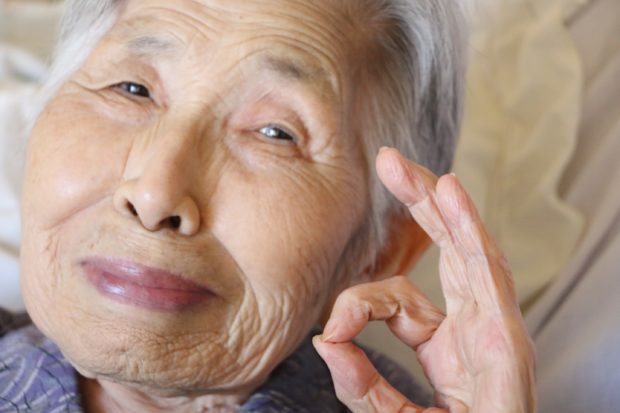In Japan, AI keeps an eye on the health of seniors

Image: Nayomiee/Getty Images via ETX Studio
A researcher in Japan has developed a program based on artificial intelligence, putting technology at the service of seniors to keep them in good health for as long as possible.
From wild karaoke nights to discreet love-hotel trips and a boundless love of French wine, there’s no doubt that people in Japan know a thing or two about the good life. But they may also hold the secrets of longevity, as the Land of the Rising Sun is one of the global locations where people live the longest, and in good health.
According to United Nations data reported by Insee for the 2020-2025 period, average life expectancy in Japan is 88.9 years for women and 81.9 years for men. Keeping elderly individuals in good health is therefore a major challenge in the country, especially in times of pandemic.
One of the most well-known examples of Japanese health and longevity is the Okinawa diet, which takes its name from the Japanese island that’s home to the most centenarians, or people who live to be at least 100 years old. And it’s a relatively simple formula: minimal alcohol, regular physical exercise, lots of vegetables, rice, tofu, fresh fish and avoiding processed foods as much as possible.
For many years, Kuno Shinya, a professor at Tsukuba University, has been exploring the field of longevity in Japan, with a particular focus on ways of improving the health of the country’s elderly. To promote this precious lifestyle and health data among local communities, the researcher set up “Tsukuba Wellness Research,” with a program for monitoring health in real time. Smart health-tracking devices notably recorded health information among participants, such as blood pressure, weight, exercise and diet.
A program inspired by the ‘Smart Wellness City’ concept
Beyond monitoring the health of seniors, the professor’s project also integrated an incentive system, for example, giving rewards like gift certificates to those doing more exercise.
Information relating to the health of participants was obtained thanks to the “Smart Wellness City-AI” program, developed by Kuno Shinya in collaboration with the telecoms firm subsidiary, NTT Data Institute of Management Consulting.
Launched in 2020 and used in around 10 municipalities in Japan, this program guarantees anonymity and data security for citizens who accept to take part. The aim of the project is to use digital technology to help local governments develop and put in place effective public health policies, in turn reducing the costs associated with residents’ medical expenses.
Kuno Shinya was notably inspired by the concept of the “Smart Wellness City,” a city designed to encourage residents to stay healthy. Tokyo, for example, is one such city, where the infrastructure has been designed to encourage residents to walk rather than use cars. The Japanese capital is also known for bringing in a strict anti-diesel policy back in the 2000s, which has reportedly contributed to improving the death rate from pulmonary disease by over 20%. JB
RELATED STORIES:
Nun survives COVID-19, celebrates 105th birthday in nursing home